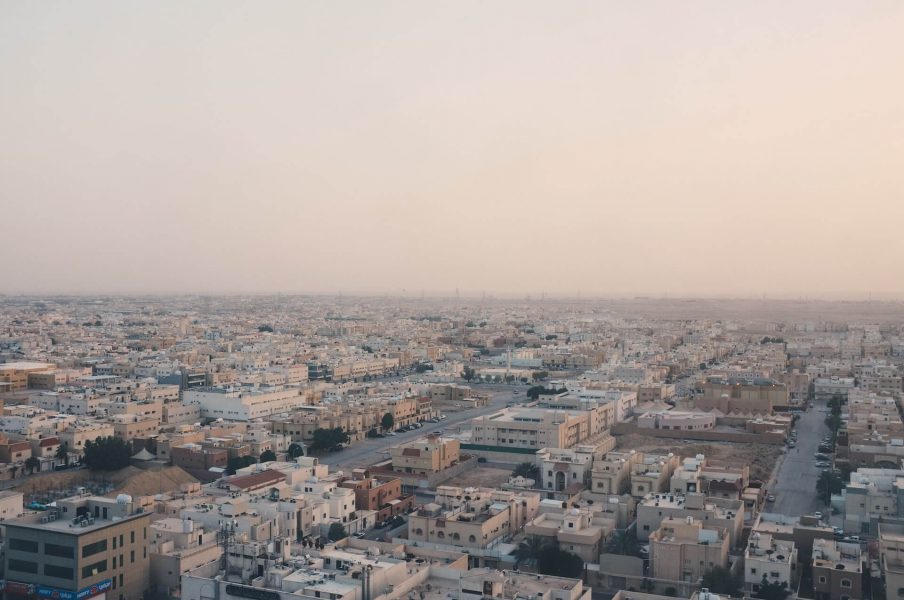“But they don’t?”: Women working in the Middle East

Jemima Piggott discusses her time spent living in the Middle East and what she learnt about women’s work culture there.
There are a lot of preconceptions about the Middle East, and a lot more about being a woman within that space. For instance, when I told a friend this article was “about women working in Saudi” she replied with a quizzical “but they don’t?”. I can’t deny that when I moved there, I had assumptions about how I would be treated and viewed as a white female teenager roaming the streets of Amman, and now Riyadh. Whilst I’ve had the opportunity to grow my understanding of the culture and how as an expat, I fit into that, until my interview with Anna, I hadn’t really checked my presumptions of what it’s like to work as a woman within, what is notoriously one of the most conservative countries in the world, Saudi Arabia.
Anna’s role is Deputy Head of Mission and Deputy Ambassador in the Foreign Commonwealth and Development Office (FCDO) in Riyadh. Whilst the first part of her role is primarily focused on the smooth running of the British Embassy and its network, as Deputy Ambassador she also has to engage in a lot of representational work when the Commissioner or Ambassador is away. When talking about presumptions and expectations, I asked Anna if she had any of her own before she started the job. She explained to me how she phoned her predecessor and asked him “this is famously one of the most conservative countries in the world, realistically what is it like, how would I find it, how would I be treated and regarded?”
I can’t deny that when I moved there, I had assumptions about how I would be treated and viewed as a white female teenager roaming the streets of Amman
She continued, informing me that his response was reassuring. He explained that there were many female ambassadors already and many female leaders within the embassy, there was a precedent for women working and that effectively she, as a woman coming to work in Saudi, was “nothing special” and had not to worry about, as the Saudis also had their own female ministers and ambassadors.
With this in mind I wondered whether, despite the growing number of female leaders, there was any bias in the workspace. I was wrong. Anna summarised it as, “for the most part Saudis engage with you based on your role, not your gender. If you’re the Deputy Ambassador you’re the Deputy Ambassador – you’re the first one to enter the room, the person to sit opposite the Minister – protocol is precedent for them”. For the lesser part, she explained that, very occasionally, people would make the assumption that her husband is the Deputy Ambassador, but for the rest of the time you’re treated by what you represent rather than by your gender.
Our conversation then shifted towards the fast and growing pace of women’s representation in the workspace and how it relates to Vision 2030. This is an initiative started by the Crown Prince to elevate and empower all aspects of society, primarily increasing and improving sectors that lie outside the oil industry. As Saudi Arabia invests in these new sectors there also comes a need to expand the workforce, which ultimately includes women. I asked Anna whether she felt that this newfound empowerment of women working was being driven by an urge to rectify the repression of their rights in the past, or whether it serves as a means to an end in diversifying from the oil sector. In her opinion, “some of it is coming from a values-based perspective. I think the main driver for women’s equality was economic as much as anything else”. And whilst the outcome is the same, the primary reasoning was that the “economic transition is necessary for the country to survive”.
As Saudi Arabia invests in [Vision 2030] there also comes a need to expand the workforce, which ultimately includes women
As the country’s main motivation for this is to survive rather than acknowledge and make reparations for their past, I suddenly wondered if there could there be anxiety around Vision 2030 being too Westernised. Anna explained that whilst older generations may struggle with the pace of change, she has spoken to men who were “shedding tears of joy” when they were able to buy their daughters their first cars. And in terms of the Vision being seen as Western, she stated that “Saudi Arabia does things in their own style” and that “they decide how far they want to go”. She summarised it as “a supermarket approach to reform” – the Saudi government picks things off the shelves that fit their requirements as, ultimately, they have different domestic realities to deal with. Effectively, they honour themselves and their culture and engage with it on their own terms.
If you’re ever feeling at a loss with a new culture, my advice is to heed these words. Although I have lived in the Middle East, by not exploring Saudi to the best I could I was left with presumptions that all turned out to be disproven and regressive. This conversation, however, has definitely enlightened me on women working in the Middle East and is clearly a topic that we don’t hear about enough.


